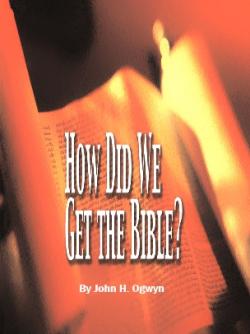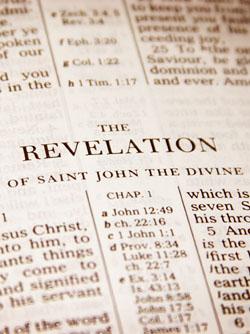The Euro: Prelude to a Superstate?
January 1, 2002 is the launch date of a new common currency for the nations of Europe. Outside of Europe, few may notice. Yet Bible prophecy reveals that the shift to the euro is an important part of a bigger picture that will shock and surprise the world just before Jesus Christ returns to this earth.
January 1, 2002 is the launch date of a new common currency for the nations of Europe. Outside of Europe, few may notice. Yet Bible prophecy reveals that the shift to the euro is an important part of a bigger picture that will shock and surprise the world just before Jesus Christ returns to this earth. You need to understand the significance of what is happening in Europe—and where it will lead.
Since World War II, farsighted European statesmen have been motivated by a powerful vision. Their initial goal was to create a European Community built around a Common Market. They hoped that uniting Europe would prevent conflicts that had ravaged the continent so many times in the past. A common currency was a critical step towards European Union. Europe's leaders know this grand scheme, rooted in Europe's long history, would recreate the empire of Charlemagne—crowned Holy Roman Emperor by the Pope in 800ad. Charlemagne and his successors viewed themselves as heirs of the Roman Caesars. European leaders (including the Pope) understand the power of this heritage and the emotional appeal of a crusade to reunite European "Christendom."
In 1991, through the Treaty of Maastricht, Europe's leaders agreed to a monetary union that was irrevocable and irreversible, and set target dates for a common currency and a European Central Bank. European leaders feel that the momentum toward unity must be maintained to prevent Europe from slipping back into dangerous "old ways." The euro is seen as the "foundation of a United Europe" and the "motor of European integration" (The Principality and Power of Europe, Hilton, 1997, pp. 113–114). It is claimed that "the euro will be a guarantor of peace, freedom, economic stability and job security" (Europe Adrift, Newhouse, 1997, p. 102). For some, faith in the euro and Europe has become a secular religion.
However, there is a dark side to this grand vision. It is no secret that the euro is a tool to restore a united Europe to its once-held place as a major player on the world stage. The euro could "challenge the dollar's hegemony; and accelerate European integration… into an economic and political superpower to rival the U.S." (Wall Street Journal Europe, Sept. 10, 2001). The Maastricht Treaty was an attempt by the French to tie a newly united Germany (80 million strong) tightly to Europe. Replacing the German Federal Bank with a Central European Bank will give other nations (especially France) a chance to control Europe's money—and Germany. Money is power. Whoever controls Europe's money controls Europe, and "those who control the world's purse strings are at the helm of global destiny" (Hilton, p. 112). The plan for European monetary and political union is largely the work of France and Germany, to which the smaller nations generally concede. Yet France and Germany have conflicting goals, ambitions and fears. The real story of the euro is not about economics, it is about power—who will play Charlemagne in the new Europe. Events under way in Europe have been called "a dirty war for the control of Europe's money" (The Rotten Heart of Europe, Connolly, 1995, p. 3).
Not everyone sees the euro as a panacea. The commitment at Maastricht to an "irrevocable and irreversible" European monetary union has been termed an unwise and risky "leap into the unknown… a great mistake, a misguided goal… a project that may end in tears" (Newhouse, pp. 97, 101, 295). Locking Europe into one fixed interest rate could become a "sword of Damocles" that damages national economies and divides Europeans. Brian Connolly, a former senior member of the European Commission, states bluntly: "Europe built on its money would be a Europe sitting atop the fault lines of an earthquake zone" (Connolly, p. 378). Another scholar comments that Europeans "lack the degree of cultural unity required by a project so far-reaching and full of pitfalls. Those who don't see the risks they have taken on have drifted into denial" (Newhouse, p. 298).
The euro alone will not unite Europe. Europeans have been unable to agree on common rules to guide their financial affairs, and "it is now clear that a single currency isn't powerful enough on its own to force such a change" (Wall Street Journal Europe, Sept. 10, 2001). Additional help will be needed. The effort to unite Europe has been compared to building the great European cathedrals, however, "the Church of Rome sustained that kind of effort" (Newhouse, p. 293). Dr. Otto von Habsburg states that "the imperial crown of Charlemagne and of the Holy Roman Empire might well have its part to play" in eventually uniting Europe (Hilton, p. 35).
European monetary union will not work without political union. Nations of Europe will have to turn over economic and political sovereignty to a central government. Independent democracies will have to forfeit fundamental powers to bureaucrats in Brussels—where 90 percent of decisions are made by unelected officials (Newhouse, p. 80). Europe's leaders created a Central Bank accountable to no one but itself. If Britain joins the common currency, the British will turn over 80 billion pounds to a Central Bank that is totally out of their control. The potential for abuse in this system is immense—if power-hungry politicians emerge with an evil agenda. Observers warn, "Britain [and other Europeans] are sleepwalking into a European superstate from which there will be no escape" (Hilton, p. 97). This superstate will be dominated by Roman Catholic religion, and Protestants will be outnumbered three or four to one. Critics assert the European Parliament is a democratic façade, and that real power in a European superstate will be more totalitarian in nature (Hilton, pp. 82–84). One reporter commented: "Unless we wake up and defend our individual and collective rights… we may find, when our eyes are open, that we no longer have any power at all" (The London Times, Jan. 1, 2000).
But what lies ahead? The Bible reveals that "in the latter days" we will see the last phase of a system whose roots go back to ancient Rome arise again in Europe (Daniel 2:28, 40–43). It will be a fragile federation—likened to a mixture of iron and clay. This 7th and final revival of the Roman Empire (Revelation 7:10–11), aided by demonic power, will surprise and shock the world (Revelation 13:1–4). This revival will be promoted by a religious leader working miracles (Revelation 13:11–18). Opponents of this new order will be persecuted and killed. Non-conformists will be marked in a way that prevents them from holding a job. This European-based system will be an economic entity involving global trade (Revelation 18). Ten kings [national leaders] will give their power [money] and authority [sovereignty] to the beast (Revelation 17:12–13). This fragile federation will be short-lived (three-and-a-half years)—as was Charlemagne's empire. The political beast will turn on and destroy its religious cohort (Revelation 17:16–17). As the whole system implodes and crumbles, merchants of the earth will weep at the suddenness and totality of its demise (Revelation 18:9–20). The introduction of the euro to unite Europe is significant. It will usher in events that will climax at the return of Jesus Christ. These prophecies are a warning for us today. God will provide a way of escape for those who heed His admonitions (1 Corinthians 10:1–13). For more information about these sobering events, request our free booklet The Beast of Revelation—and keep reading Tomorrow's World, where prophecy comes alive!






